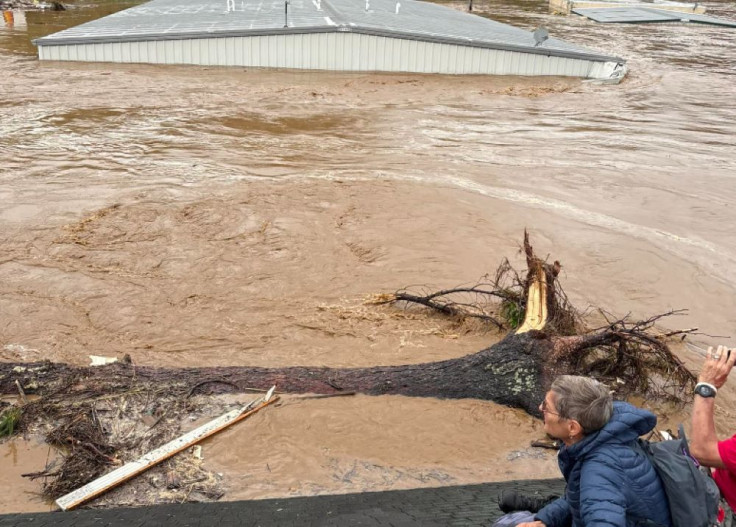
Hurricane Helene has wreaked havoc across several southeastern states through catastrophic storm surges, wind damage, and extensive inland flooding. The storm has claimed at least 189 lives, according to The Associated Press, making it the deadliest mainland hurricane since Hurricane Katrina in 2005, which resulted in nearly 1,400 deaths.
Helene made landfall last week in Florida's Big Bend region as a powerful Category 4 hurricane, leading to widespread destruction in Florida, Georgia, South Carolina, North Carolina, Virginia, and Tennessee.
As of Thursday, most fatalities have been reported in North Carolina, where swollen rivers, debris, and landslides caused devastating flooding. The devastation was particularly severe in the Blue Ridge Mountains, where at least 57 fatalities were reported in and around Asheville.
South Carolina, Georgia, Florida, Tennessee, and Virginia also reported deaths, with South Carolina alone seeing 39. Power outages are also affecting close to half a million residents.
Homeland Security Advisor Liz Sherwood-Randall indicated that the death toll could rise significantly. "The current data suggests there could be as many as 600 lost lives," she stated. However, she cautioned that these figures are not yet confirmed as many individuals remain unaccounted for.
In response to the disaster, President Joe Biden traveled to Raleigh, North Carolina, to meet with first responders and local officials. His visit was timed to ensure it would not disrupt ongoing rescue efforts.
Biden commended both the Democratic Governor Roy Cooper of North Carolina and Republican Governor Henry McMaster of South Carolina for their coordinated responses to the crisis. In the wake of disasters, Biden said, "we put politics aside". "No one can deny the impact of the climate crisis anymore. Storms are getting stronger and stronger", he added.
Helene's aftermath has drawn comparisons to Hurricane Ian, which caused 156 deaths in 2022 across Florida, North Carolina, and Virginia. A consortium of scientists has concluded that the climate crisis has played a role in intensifying Helene, leading to rainfall that was up to 20% heavier and winds that were up to 7% stronger than they would have been otherwise.
The analysis also highlighted that elevated ocean temperatures in the Gulf of Mexico contributed to Helene's power, a phenomenon that climate scientists have long warned about.
Helene made landfall on Thursday, striking Florida's Big Bend region with a storm surge reaching 15 feet and winds of up to 140 mph. Western North Carolina recorded nearly 29 inches of rain when the storm stalled over the area.
© 2025 Latin Times. All rights reserved. Do not reproduce without permission.




